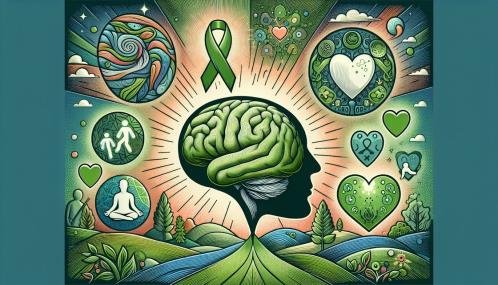Behavioral health is a broad term that encompasses our emotional, psychological, and social well-being. It’s about how we think, feel, and behave, and how these factors impact our overall health. Just as we prioritize physical health, it’s equally important to attend to our behavioral health.
Difference Between Behavioral Health and Mental Health
Although behavioral health and mental health are often used interchangeably, they are distinct concepts. Mental health refers to emotional, psychological, and social well-being, while behavioral health emphasizes how behaviors impact overall health. Understanding “what is behavioral health” involves acknowledging this distinction and recognizing that behavioral health encompasses a broader spectrum, including substance abuse and lifestyle factors.
The Importance of Behavioral Health
Prioritizing behavioral health is essential for several reasons:
- Improved Overall Health: Good behavioral health contributes to better physical health outcomes.
- Enhanced Relationships: Strong emotional and social health fosters healthier relationships.
- Increased Productivity: Positive mental and emotional states boost productivity and performance.
- Reduced Stress: Effective coping mechanisms and stress management techniques promote well-being.
- Enhanced Quality of Life: Good behavioral health leads to a more fulfilling and satisfying life.
Why Behaviora’l Health Matters
Behaviora’l health directly affects every aspect of life. Poor behaviora’l health can lead to chronic illnesses, strained relationships, and decreased productivity. By exploring “what is behaviora’l health,” we realize its role in preventing issues such as depression, obesity, and cardiovascular disease. Promoting behaviora’l health enhances the quality of life and fosters resilience.
How to prioritize behaviora’l health
Here are some practical tips to improve your behaviora’l health:
- Self-Awareness: Be mindful of your thoughts,feelings, and actions.
- Handling Stress:Practice relaxation techniques like meditation or yoga.
- Healthy lifestyle: prioritize sleep, nutrition, and physical activity.
- Social Connection: Spend time with loved ones and build strong relationships.
- Seek Professional Help: If necessary, don’t be afraid to seek advice from a mental health specialist.
How Lifestyle Choices Affect Behaviora’l Health
Everyday habits significantly influence behaviora’l health. Poor sleep, lack of exercise, and unhealthy diets can negatively impact emotional and physical well-being. Conversely, mindful practices such as yoga, meditation, and balanced nutrition contribute positively. By understanding “what is behaviora’l health,” we learn that small lifestyle changes can lead to significant improvements.
Conclusion
Behaviora’l health is a crucial aspect of our overall well-being. By understanding its components and prioritizing its care, we can cultivate a healthier and happier life. Prioritize your mental and emotional health, and you’ll reap the benefits in all areas of your life.
FAQs
- What are the signs of poor behaviora’l health? Some common signs include persistent sadness, anxiety, changes in sleep patterns, difficulty concentrating, and withdrawal from social activities.
- How can I help someone with behaviora’l health issues? Be supportive, listen actively, encourage professional help, and avoid judgment.
- What are some effective coping mechanisms for stress? Deep breathing, mindfulness meditation, physical activity, and spending time in nature can be helpful.
- How often should I see a mental health professional? The frequency of sessions depends on individual needs and treatment goals.
- Is it normal to experience anxiety or sadness sometimes? Occasional feelings of anxiety or sadness are normal. However, persistent or severe symptoms may indicate a mental health condition.
